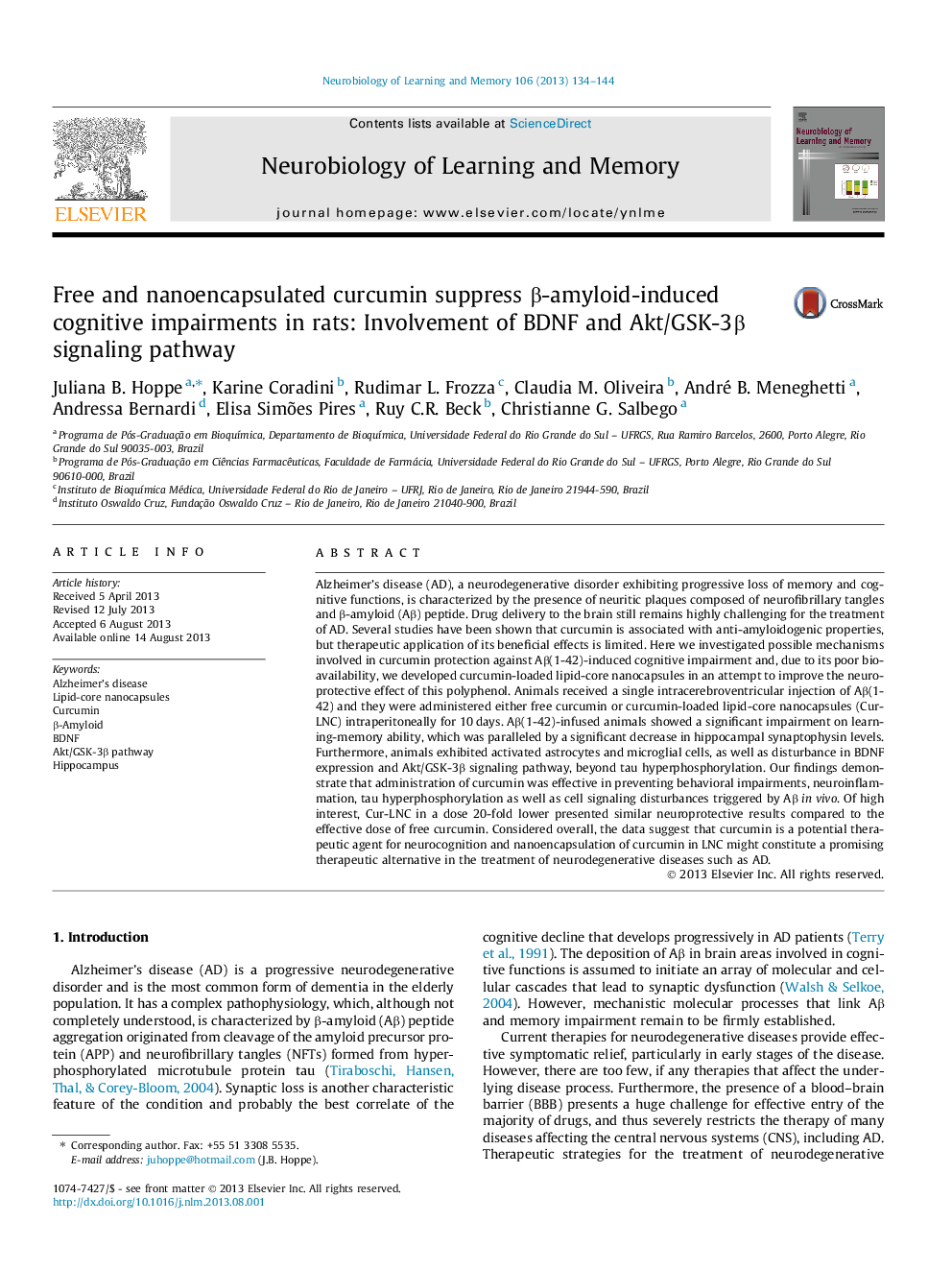| کد مقاله | کد نشریه | سال انتشار | مقاله انگلیسی | نسخه تمام متن |
|---|---|---|---|---|
| 936600 | 1475169 | 2013 | 11 صفحه PDF | دانلود رایگان |

• Nanoencapsulation provides an improvement in the in vivo performance of the curcumin.
• Curcumin prevents cognitive impairments induced by Aβ infusion in rats.
• Curcumin increases BDNF expression in hippocampus of Aβ-injected rats.
• PI3K/Akt/GSK3-β pathway mediated the neuroprotective effects of curcumin.
• Curcumin suppresses GSK-3β-dependent phosphorylation of tau triggered by Aβ.
Alzheimer’s disease (AD), a neurodegenerative disorder exhibiting progressive loss of memory and cognitive functions, is characterized by the presence of neuritic plaques composed of neurofibrillary tangles and β-amyloid (Aβ) peptide. Drug delivery to the brain still remains highly challenging for the treatment of AD. Several studies have been shown that curcumin is associated with anti-amyloidogenic properties, but therapeutic application of its beneficial effects is limited. Here we investigated possible mechanisms involved in curcumin protection against Aβ(1-42)-induced cognitive impairment and, due to its poor bioavailability, we developed curcumin-loaded lipid-core nanocapsules in an attempt to improve the neuroprotective effect of this polyphenol. Animals received a single intracerebroventricular injection of Aβ(1-42) and they were administered either free curcumin or curcumin-loaded lipid-core nanocapsules (Cur-LNC) intraperitoneally for 10 days. Aβ(1-42)-infused animals showed a significant impairment on learning-memory ability, which was paralleled by a significant decrease in hippocampal synaptophysin levels. Furthermore, animals exhibited activated astrocytes and microglial cells, as well as disturbance in BDNF expression and Akt/GSK-3β signaling pathway, beyond tau hyperphosphorylation. Our findings demonstrate that administration of curcumin was effective in preventing behavioral impairments, neuroinflammation, tau hyperphosphorylation as well as cell signaling disturbances triggered by Aβ in vivo. Of high interest, Cur-LNC in a dose 20-fold lower presented similar neuroprotective results compared to the effective dose of free curcumin. Considered overall, the data suggest that curcumin is a potential therapeutic agent for neurocognition and nanoencapsulation of curcumin in LNC might constitute a promising therapeutic alternative in the treatment of neurodegenerative diseases such as AD.
Journal: Neurobiology of Learning and Memory - Volume 106, November 2013, Pages 134–144